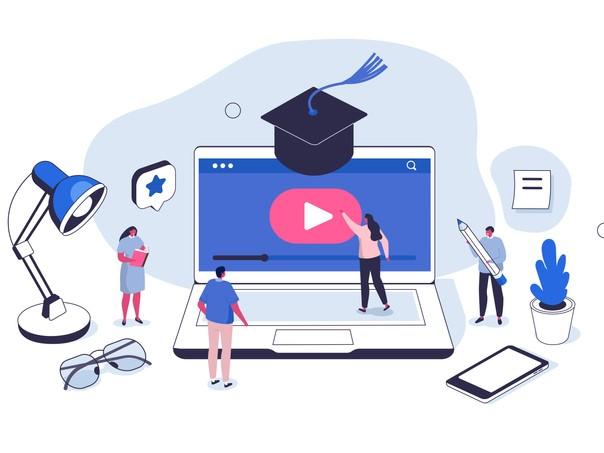
Questions beyond majors: developing mental maturity in students

Imagine that for your undergraduate degree, you didn’t declare a major but instead developed your own compelling question to direct your studies. To investigate this question, you must build your own course plan, reading list and thesis project, all under the supervision of a faculty mentor. What would you ask? And how would you grow and develop because of self-authoring your own education?
We have seen students produce extraordinary results with this model. For example, a basketball player, coming to terms with the unlikely reality of a professional career, developed and launched his own sports agency as a result of pursuing the question “What makes an effective negotiator?” Another published her interdisciplinary thesis that explored the question “How does religious discourse shape communities of peace?” This student’s faculty mentor said she would have been an excellent religious studies major, but that without her question she “wouldn’t have brought other fields into her thinking, and might not have developed early on the kind of confidence in her own learning that a question can bring”.
- Building emotional resilience is not creating a generation of ‘snowflakes’
- How to help students with widely varied prior education to thrive in first year
- Students are disengaged – and it’s due to how higher ed is structured
These are just a couple of the student successes from Quest University Canada, where rather than declaring predetermined majors, all students construct their own self-directed, interdisciplinary concentration programmes built on individual questions.
What benefit might questions provide beyond traditional majors? Given the complex world that today’s undergraduate students are inheriting, we assert that university education needs to prepare students for continued and authentic sense-making of rapidly evolving challenges. Our research suggests that questions might better prepare students for this fast-changing world by accelerating the development of expanded capacities of mind.
Understanding the potential benefits of questions compared with majors requires re-examining the purpose of an undergraduate education, which can harbour hidden and contradictory entanglements. While conventional understanding suggests that the purpose of undergraduate education ought to be the accumulation of content and skills, we argue that there is an essential additional dimension that demands attention: mental maturation.
One framework for understanding mental maturation is Robert Kegan’s theory of adult development. Kegan’s research shows that adults can continue to mature throughout their lives, reaching higher and more complex levels of consciousness, or “orders of mind”. Kegan’s first critical passage in adulthood – and one not guaranteed to happen – is the transition from a “socialised mindset”, a stage of maturity in which one learns to adapt and express values of one’s surrounding community, to a “self-authoring mindset”, where one transcends identification with a single community and instead constructs an internal set of values built from participation across multiple communities.
There are additional orders of consciousness in Kegan’s theory, including the “imperial mindset” of the teenager, which precedes the socialised mindset, and the rare “self-transforming mindset”, the transcendence of self-authorship whereby one is able to stand back and call into question and adapt one’s own internal system of value-making.
Kegan and others have argued that the purpose of higher education should be to foster the development of self-authorship in students. The development of self-authorship, however, cannot result from technical instruction. Instead, it requires a perceptual “subject to object shift” whereby the tacit and unexamined worldview to which one is “subject” gradually becomes distinguishable as a tacit worldview that is possible to view as the “object” of one’s awareness. Undertaking this kind of shift requires confronting one’s hidden assumptions by encountering the limitations they impart. Such growth isn’t easy; Kegan describes it vividly as the “human wrenching of the self from its cultural surround”. Despite being demanded by contemporary society, traditional higher education does not necessarily prompt this kind of development necessary for self-authorship in modern students.
Our ongoing research suggests that pursuing questions rather than majors might support students’ mental maturation towards self-authoring mindsets. What’s more, our findings also suggest that guiding student questions might prompt faculty mentors’ mental maturation beyond self-authoring towards self-transforming mindsets. There is still much to be studied; however, we find that when students in hot pursuit of their questions are grappling authentically with ideas at the edge of their knowledge, and when faculty are supporting their struggle, they encounter the kind of disorienting dilemma that can lead to transformational learning. While our conclusions are based on the full curricular replacement of majors by questions, some benefit may still extend to programmes that embed student-formed questions into traditional approaches.
By establishing mental maturity as a primary goal in undergraduate education, content and skill acquisition – the goals of the traditional major – can be subsumed into an educational approach that prioritises adaptation and lifelong learning built on expanding knowledge. If today’s undergraduates are to meet the demands of the world they are entering – sometimes referred to as “VUCA” (volatile, uncertain, complex, ambiguous) – their undergraduate education needs to equip them with the mental maturity to face those challenges. Achieving self-authorship gives one an internal compass to navigate a shifting landscape. Questions can take a step beyond majors to help prompt the conditions necessary for developing and honing such compasses, transforming both students and faculty in the process.
Ryan Derby-Talbot is dean of Deep Springs College, California. Marjorie Wonham is a professor in life sciences at Quest University Canada.
If you would like advice and insight from academics and university staff delivered direct to your inbox each week, sign up for the Campus newsletter.
Additional Links
For more information related to this topic, see our collection What is block teaching?.


